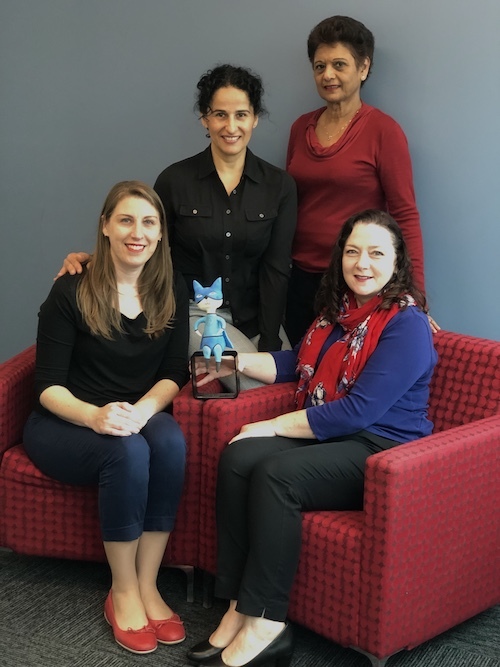What makes a good grantmaker?
Posted on 21 Nov 2019

You would expect that the Grantmaker of the Year would have a good handle on what makes a good grantmaker, and you would be right.
Asked what they would change about grantmaking in Australia, the NSW Heritage Grants Team said they would boost recognition of the profession and the value of its contribution. They nominated a "diverse skill set" that all good grantmakers should attain:
- Be skilled strategic planners
- Ensure strong governance
- Know what grant programs are out there, and educate people about opportunities
- Be great communicators and collaborators
- Have effective customer service skills
- Have expertise in financial and budget management
- Show sound judgement and risk management practices
- Ensure good systems management.
This combination of attributes, they say, is the route to "transparency, equity and accountability in grantmaking", as well as better outcomes.
And so how should one approach these aims? Well, the team have compiled these useful pointers.
Strategic planning
Consider what you are trying to achieve and what strategies and grant mechanisms will help achieve that aim. Understand your stakeholder groups, their agenda and needs, the level of funding, the timeframe for delivery, and available resourcing, and establish a risk register. This needs to happen well before a grant program is established.
Good governance
Procedures, processes, templates and governance structures that are fair and transparent and ensure accountability are essential. Good governance and probity require:
- Guidelines with unambiguous eligibility criteria, and unambiguous, measurable assessment criteria
- Forms that ask the right questions
- Assessment and decision-making frameworks that ensure good decisions
- Disclosure of conflicts of interest
- Sound documentation of decisions and record keeping
- Robust funding agreements to clarify conditions and responsibilities
- A process to consider variation, monitoring and evaluation
- A culture of continual improvement.
Communications, program promotion and customer service
A sound communications strategy that ensures all potential applicants receive the relevant information during program promotion - in a format that meets their needs - is essential to ensure program equity.
Communicating the right information to applicants in a way they understand during a project can help that project succeed, while helping applicants overcome problems.
Grantmakers should also make sure they get the right information from grantees when it comes to monitoring, evaluation and acquittals.
Strong financial management and reporting
Financial management skills are essential. You need to understand your grantees' cashflow requirements, and adjust milestones to meet project needs, while ensuring your organisation's budget needs are met, and financial delegations are adhered to.

This requires an understanding of GST, tax implications, financial management systems and appropriate recording of financial information, to meet reporting requirements and budget management.
Operational policy
Analysing anomalies, finding appropriate solutions to problems that arise, and communicating the outcome to those affected will help to maintain accountability and consistency.
Reporting on and promoting outcomes
Limitations on resources often mean grantmaking outcomes aren't appropriately acknowledged. Taking time to report on and promote outcomes will help ensure that the hard work of grantees and grantmakers alike is noticed and celebrated.
Audits and evaluation
Truly reflective evaluations have the greatest value for improving grantmaking. They require skills in developing evaluation and audit briefs, providing input to these processes, and reviewing survey questions and the results.